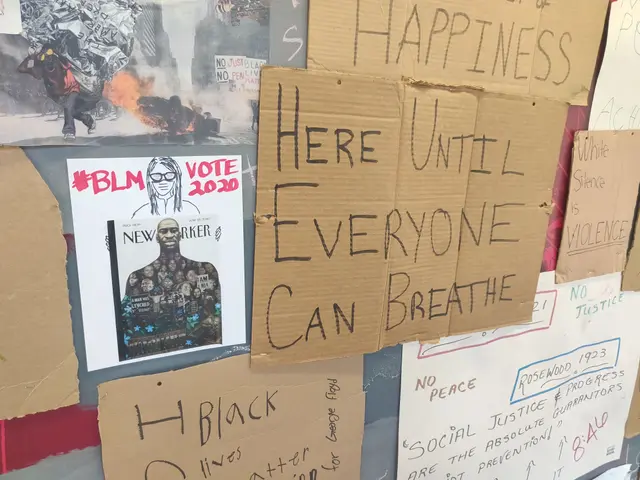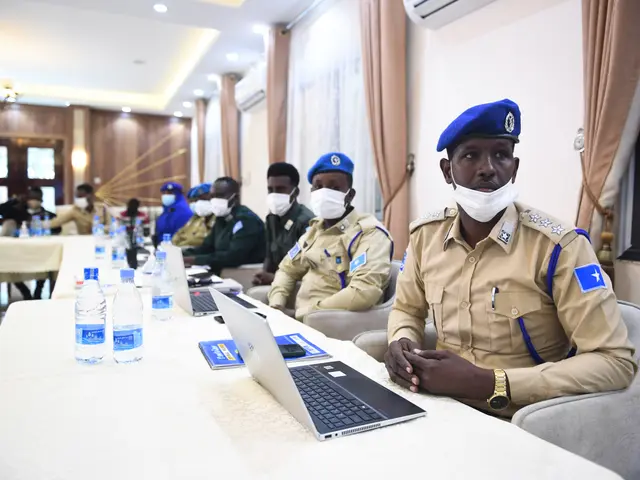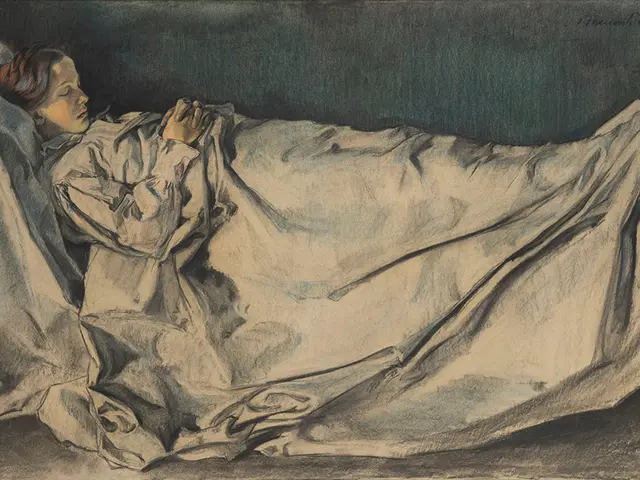Decoding VA Disability Ratings for Sleeplessness: An All-Inclusive Handbook
Veterans Suffering from Insomnia Due to Military Service May Be Eligible for VA Disability Benefits
Insomnia, a sleep disorder characterized by difficulty falling or staying asleep, has become a significant concern for veterans returning from active duty. This condition, often intertwined with other service-related ailments, can severely impact a veteran's daily functioning, mental health, and overall quality of life.
To address the issue, the Department of Veterans Affairs (VA) has established a rating system for veterans who experience insomnia related to their military service. However, it's essential to note that insomnia is not listed as a standalone condition for VA disability ratings. Instead, it can be considered a symptom of other service-connected conditions, such as mental health disorders like depression or anxiety, which are eligible for compensation.
When evaluating a claim for insomnia secondary to a service-connected primary condition, the VA follows specific criteria. First, the veteran must have a service-connected primary condition, such as depression. Depression, a mental health disorder that can be service-connected, can then be rated for VA disability purposes.
To establish a secondary service connection for insomnia, the veteran must demonstrate that the insomnia is a direct result of the service-connected primary condition (e.g., depression). This typically requires medical evidence showing a nexus between the two conditions. Once established, the insomnia will be considered as part of the overall rating for the primary condition (e.g., depression), and ratings for mental health disorders are typically 0%, 10%, 30%, 50%, 70%, or 100%.
Insomnia can significantly impact a veteran's mental health and daily functioning, potentially leading to higher disability ratings for the service-connected primary condition. When assessing mental health disorders, the VA evaluates them using the Schedule for Rating Disabilities (38 CFR 4), which follows the criteria set out in the Diagnostic and Statistical Manual for Mental Disorders (DSM-IV). The rating is based on the degree of occupational and social impairment caused by the condition.
In cases where insomnia is secondary to depression, the VA will consider its impact on the veteran's overall level of disability when rating the primary condition (depression). Additionally, establishing a secondary service connection for insomnia due to depression requires medical evidence that clearly links the insomnia to the service-connected depression. This typically involves a diagnosis of depression and medical documentation that explains how the insomnia is a symptom or complication of the depression.
The inclusion of insomnia as a symptom of depression can potentially increase the overall disability rating for the veteran, as it may reflect a more severe level of impairment. However, the specific rating will depend on the extent to which insomnia impacts the veteran's social and occupational functioning.
When pursuing VA disability benefits for insomnia and related conditions, collecting comprehensive evidence is crucial. Keeping detailed records of sleep patterns, participating in VA-sponsored sleep studies and mental health evaluations, and working closely with healthcare providers can help establish a clear record for claims. Veterans Service Organizations, VA healthcare providers, and online resources can also provide valuable assistance and information in understanding rights and options when it comes to VA disability benefits.
References:
- Department of Veterans Affairs. (2021). Schedule for Rating Disabilities - Mental Disorders. 38 CFR § 4.130.
- American Psychiatric Association. (2013). Diagnostic and Statistical Manual of Mental Disorders (5th ed.).
- Germain, A., et al. (2012). Sleep disturbances in psychiatric disorders: Effects on function and quality of life in mood disorders, alcoholism, and schizophrenia. Annals of Clinical Psychiatry, 24(1), 68-80.
- Raskind, M. A., et al. (2018). Trial of Prazosin for Post-Traumatic Stress Disorder in Military Veterans. New England Journal of Medicine, 378(6), 507-517.
- Department of Veterans Affairs. (2021). M21-1 Adjudication Procedures Manual.
- National Center for PTSD. (2021). Sleep Problems and PTSD. U.S. Department of Veterans Affairs.
- Veterans Benefits Administration. (2021). Annual Benefits Report Fiscal Year 2020.
- Institute of Medicine. (2013). Returning Home from Iraq and Afghanistan: Assessment of Readjustment Needs of Veterans, Service Members, and Their Families. The National Academies Press.
- Insomnia, a sleep disorder that can worsen due to anxiety, depression, or other mental health disorders, can significantly impact a veteran's mental health and daily functioning.
- The VA evaluates mental health disorders like depression or anxiety, and their associated symptoms such as insomnia, using the Schedule for Rating Disabilities (38 CFR 4), which follows the criteria set out in the Diagnostic and Statistical Manual for Mental Disorders (DSM-IV).
- To establish a secondary service connection for insomnia, a veteran must demonstrate that it is a direct result of a service-connected primary condition, like depression, and provide medical evidence showing a nexus between the two conditions.
- Addressing the mental-health-and-wellness concerns of veterans, such as insomnia and depression, can potentially increase the overall disability rating when evaluating health-and-wellness benefits, as it may reflect a more severe level of impairment in social and occupational functioning.






